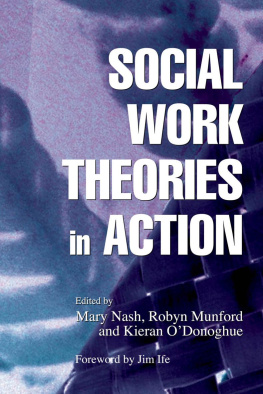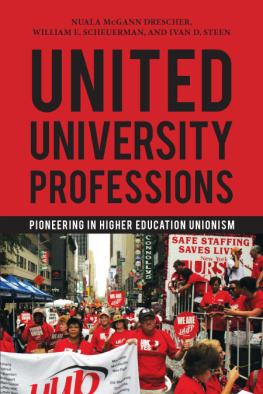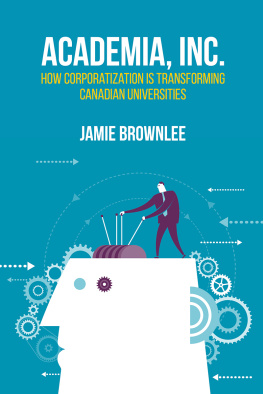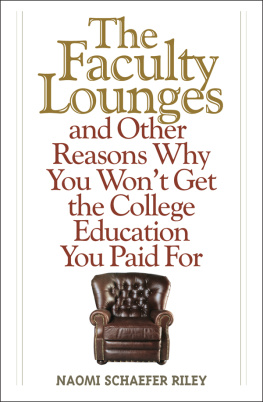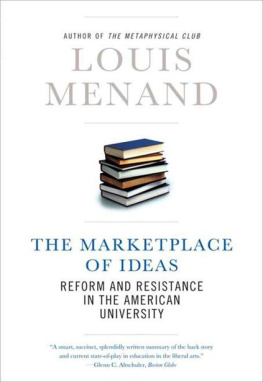THE LAST PROFESSORS
FRANK DONOGHUE
THE Last PROFESSORS
The Twilight of the Humanities in the Corporate University

Copyright 2008 Fordham University Press
All rights reserved. No part of this publication may be reproduced, stored in a retrieval system, or transmitted in any form or by any meanselectronic, mechanical, photocopy, recording, or any otherexcept for brief quotations in printed reviews, without the prior permission of the publisher.
Library of Congress Cataloging-in-Publication Data
Donoghue, Frank, 1958
The last professors: the twilight of the humanities in the corporate university / Frank Donoghue. 1st ed.
p. cm.
Includes bibliographical references and index.
ISBN 978-0-8232-2859-1 (cloth: alk. paper)
ISBN 978-0-8232-2860-7 (pbk.: alk. paper)
1. Universities and collegesUnited StatesFaculty. 2. College teachersProfessional relationshipsUnited States. 3. College teachersUnited StatesTenure. 4. HumanitiesStudy and teaching (Higher)United States.
I. Title.
LB2331.72.D 2008
378.121dc22
2008003062
Printed in the United States of America
10 09 08 5 4 3 2 1
First edition
To My Students in English 890
ACKNOWLEDGMENTS
I owe my longest-standing debt of gratitude to the Ohio State graduate students in various incarnations of my seminar on academic labor. They helped me to work out the ideas and arguments expressed here, and dedicating the book to them seems the least I can do to repay them for their interest and their effort. I dont have space to name all of them, but Ken Petri, Chris Mannion, Sarah Adams, and Adrien Ardoin stayed interested and stayed in touch. My department chair, Valerie Lee, and College of Humanities Dean, John Roberts, came through with a crucial year of funding that allowed me to complete the book. Helen Tartar provided invaluable support for the project from the moment that I described it to her. The readers of the manuscript for Fordham University Press, in particular J. Hillis Miller, offered valuable advice, almost all of which I have taken. Thanks to Stanley Fish, who long ago introduced me to academic labor as a subject worth studying, and who still influences my standards for argument and my prose style. Thanks to W. B. Carnochan and Richard Ohmann for their helpful feedback on early versions of parts of the book. Ive been especially fortunate to have so many generous colleagues at Ohio State. Jim Phelan and David Brewer offered insightful and supportive suggestions. Harvey Graff was an inexhaustible source of new ideas and references. Elizabeth Renker was the single most important influence on the shaping of this study. She was my first reader at every stage of composition and always struck the perfect balance between rigor and enthusiasm.
Two small sections of the book have previously appeared in print. Part of Chapter one appeared in the inaugural issue of American Academic, and Im grateful to Larry Gold and the American Federation of Teachers for giving me access to an audience that I might otherwise not have reached. Part of Chapter five appeared in Profession 2006 and thus, for better or worse, has the imprimatur of the MLA.
PREFACE
Universities are timeless. A Carnegie Foundation study forty years ago counted sixty-six institutions that have been in continuous operation since 1530: the Roman Catholic Church, the Lutheran Church, the parliaments of Iceland and the Isle of Man, and sixty-two universities. Professors are a different story. As we know themautonomous, tenured, afforded the time to research and write as well as teachprofessors have only been around for the last eighty years. Yet, as the American university took shape in the twentieth century, the professor became one of its defining features. The Last Professors argues that they are now disappearing from the landscape of higher education. The university is evolving in ways that make their continued presence unnecessary, even undesirable. Over the course of the last century, the American university has risen to prominence both alongside and in opposition to corporate logic and corporate values. Important recent studies such as Derek Boks Universities in the Marketplace and David Kirps Shakespeare, Einstein, and the Bottom Line have elaborated on this development. My book focuses squarely on the figure of the professor. I exclude from my study those academics whose work is subsidized by government or corporate funding or is supplemented by extensive consulting contracts. This leaves professors of humanities. I take a dispassionate look at how our jobs have evolved and how they have come to be assessed (and devalued) by corporate standards. I speculate on why those jobs are likely to vanish in the not-too-distant future and on what universities might look like without professors.
I have written a book that I suspect will be unpleasant for professors and Ph.D. students to read, since I have not only pointed out but also foregrounded the market forces and the deeply entrenched institutional practices that will, I believe, eventually overwhelm us. I paint what could be called an unremittingly bleak picture of what the future holds in store for humanities professors, and I offer nothing in the way of uplifting solutions to the problems that I describe. I think that professors of the humanities have already lost the power to rescue themselves.
Clearly, mine is not the standard approach to the problems of the humanities, a topic that has recently been so richly debated that I only hope that I have done justice to my many interlocutors. This is a different kind of book for two reasons: first, my narratives historical sweep goes from the Gilded Age to the digital age. Some might argue that this history is a fitter subject for a series of books and, indeed, I intend to write more. However, I wanted to make this books narrative a unified and, I hope, memorable story. Second, the book is more directly personal than many of the contributions to this subject. Certainly, I make the requisite acknowledgments and apologies that one always finds in the prefaces to books on the academy; I am a professor in an English department at a doctoral-granting state university, so of course my whole outlook is colored by my place in a specific discipline in the humanities and at a specific kind of school. My position in the academy thus makes it difficult for me to do justice to the community college, the comprehensive commuter university, and the small liberal-arts college, places where professorial life is defined very differently than it is at the institutionsBrandeis, Johns Hopkins, Stanford, and Ohio Statewhere I have spent my time both as a student and as a professor. Nevertheless, my decision to focus on the figure of the professor has brought my narratives and arguments even closer to home. In the course of writing sections of this book about graduate school, going on the job market, academic publishing, tenure, and institutional and individual prestige, I have had to revisit every phase of my own professional life. In the process of researching and writing this book, I have had to step away from my original field of training, eighteenth-century British literature, and this has ultimately made me feel like an outsider looking in, both on my area of specialty and on the profession at large. This has happened even though I have never ceased being a humanities professor, nor could I be mistaken for anything else. Writing about the last professors as opposed, say, to the university in ruins, has forced me into an intimate and not always comfortable relationship with my subject.
Next page


